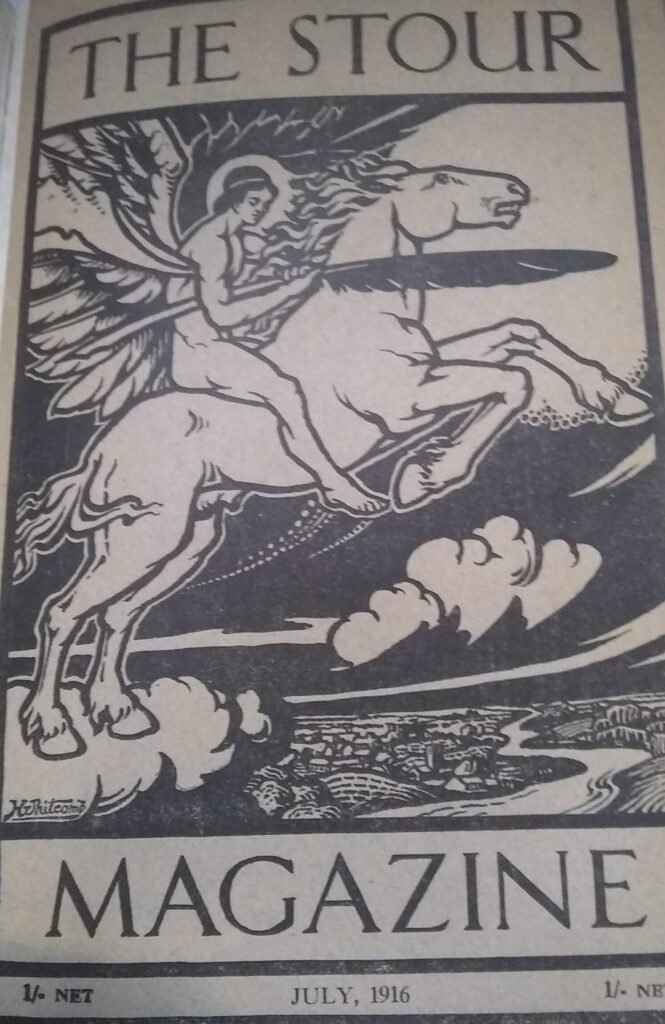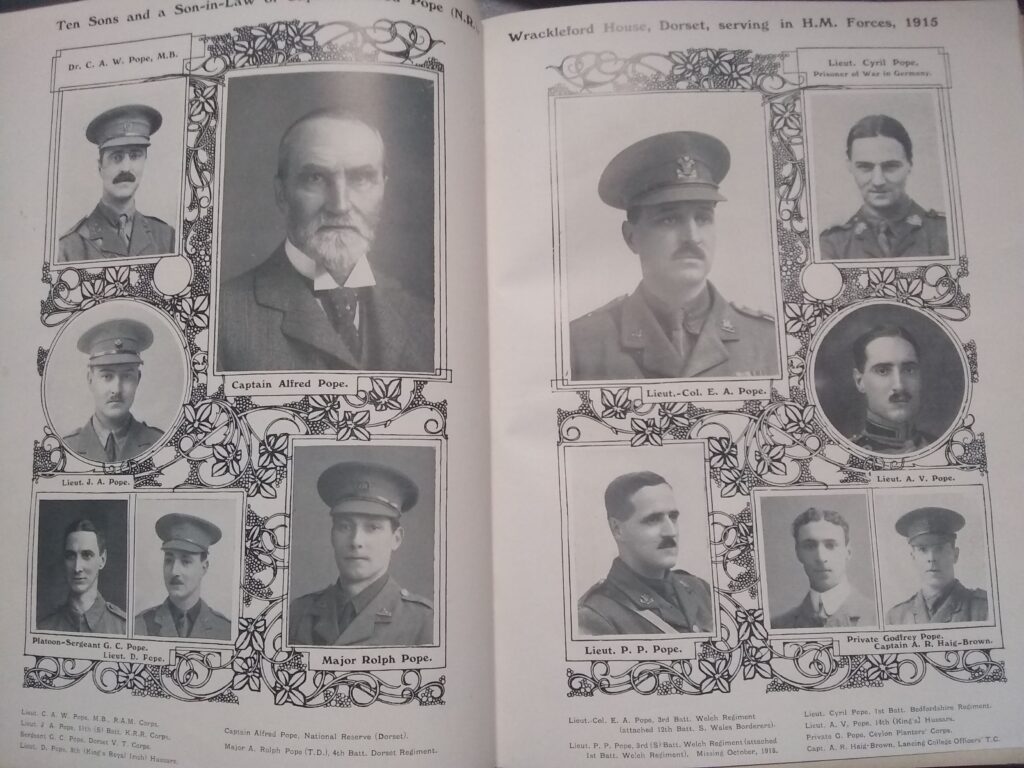In the local studies library at the Dorset History Centre you can find a large collection of journals. These journals are packed with fascinating articles and are often an underused resource. In this new series of blogs we will be highlighting some of the interesting articles within them!
This is the second in our series of blogs looking at the journals held at the Dorset History Centre. In this blog we will be picking out some highlights from those journals published in the 1910’s.
All the journals featured in our first blog continued to be published throughout the 1910’s. The only addition to the list of journals for this period are the four volumes of the ‘Stour Magazine’ published in 1916, which contain stories, poems and articles.

In this blog we will focus on ‘The Dorset Yearbook’, the journal of ‘The Society of Dorset Men in London’. At the beginning of the 1910’s this journal was mainly filled with accounts of the dinners and meetings of the society, but as the decade progressed poems, articles and stories started to appear.
Flicking through the editions from the later 1910’s you may come across poems by Thomas Hardy or articles by the famous surgeon Frederick Treves, who were the first two presidents of ‘The Society of Dorset Men in London’. You can also discover their favourite Dorset Views in the 1915/1916 yearbook.
Many of those who subscribed to the yearbook were Dorset men who had left the county, so perhaps it is not surprising that many of the stories and poems are about people longing for a rather romanticised homeland, such as the story ‘Going Home’, from the 1914 journal. This story describes a sailor deciding to return to Dorset after reading Thomas Hardy’s ‘The Woodlanders’.

The journals also paint a vivid picture of the life of Dorset folk in the First World War, both those in combat and those left at home. One of the pictures that always catches our eye when we look through the 1915/16 yearbook is the picture of Alfred Pope, owner of the Eldridge Pope Brewery, and his ten sons and son in law, who were all serving in the war. Three of his sons didn’t make it home from the war and an account of the loss of Percy Paris Pope can be found in the 1917/18 yearbook.
There are also accounts the Dorset Regiment’s activities during the war in each of the yearbooks published during the conflict.
The accounts from the front are mostly factual, but most of the descriptions of life back home in Dorset are found in stories.
In the 1914 journal ‘Kin’ tells the story of an old woman who is reluctant to take in Belgian refugees, until she comes to realise the similarities between them and her own family, and that in different circumstances it could be her loved ones fleeing their homes, a message that still seems relevant today.
‘How Grandma celebrated’ by Irish born novelist M E Francis appears in the 1918/19 yearbook and tells an entertaining story of an old woman and how she reacted to hearing peace declared.
Alongside the stories and poem are articles about subjects such as Game Birds, Dorset superstitions and traditions and Lewis Tregonwell, who was one of the first people to build a house in Bournemouth and played a large part in the growth of the town.
The articles in The Dorset Yearbook are less academic than those found in The Proceedings of the Dorset Natural History and Antiquarian Society, but serve as fascinating introductions to Dorset characters and the flora and fauna of the characters.
Whether your interest is in Dorset literature, genealogy, life in the past or natural history you will find something to entertain you in The Dorset Yearbook.
—
This is the second in our series looking at our academic journals. You can read other blogs by clicking on the link below:

